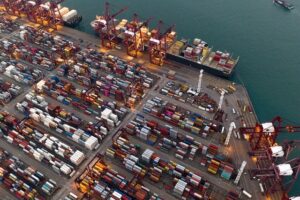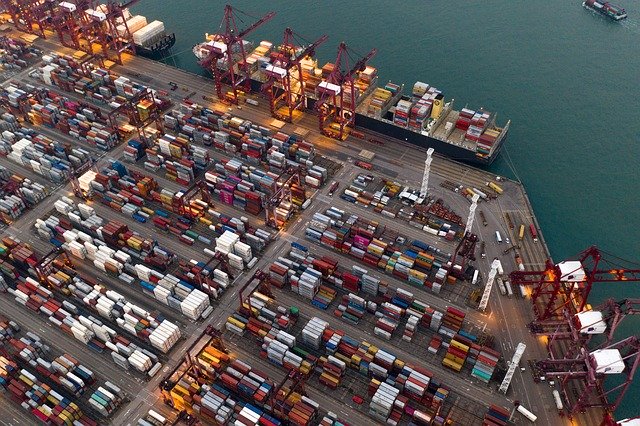 Eight United Nations (UN) organizations are calling on governments to facilitate trade and transport and restore supply chain connectivity amid the severe economic fallout from curtailing travel and closing borders.
Eight United Nations (UN) organizations are calling on governments to facilitate trade and transport and restore supply chain connectivity amid the severe economic fallout from curtailing travel and closing borders.
The UN bodies made the call as they noted how the early response of countries to restrain the spread of the pandemic has led to severe disruptions in supply chains and trade flows worldwide.
“By this action all transport operations have been affected which has led to disruption of supply chains and trade flows. As a result, the delivery and availability of essential products such as food or medicines became a common challenge undermining countries’ capacity to respond to COVID-19 and begin to sustainably recover,” they said in a statement.
They said that prior to the crisis, transportation was a key contributor to economic growth:
- Maritime transport carried more than 108.9 trillion tonne-kilometers yearly of the world’s food, energy and raw materials, manufactured goods, and components. It carried more than 80% of global trade by volume, and 60% to 70% of global trade by value. Two million seafarers operated the world’s merchant ships.
- Air transport carried about 4.5 billion passengers and 223 billion freight tonne-km in 2019, while airfreight represented 35% of the value of goods shipped in all transport modes combined. The total number of licensed aviation professionals was 887,000 in 2019.
- The inland transport modes (road, rail and inland navigation) provided vital links for intra-regional trade. In the pan-European region they moved 6.15 trillion tonne-km by road, 6.09 trillion tonne-km by rail, and 654 billion tonne-km by inland waterways.
Troubling forecasts
The UN statement highlighted preliminary data and forecasts indicating the severe impacts on economies worldwide as a result of curtailing travel and closing borders, for example:
- Inland transport may fall by up to 40% in 2020 in the pan-European region
- Freight transport volumes may reduce by up to a half by the end of 2020 in most parts of Asia
- Value of regional exports and imports is expected to contract respectively by 23% and 25% in Latin America and the Caribbean
- Total losses in the revenues of airline companies from the Arab region are estimated in 2020 at about US$38 billion (some 53% of 2019 revenues)
- African airlines may lose over $6 billion of revenue and the contribution of the industry to the GDP of countries on the continent may drop by $28 billion. And 3.1 million jobs linked to the industry are at risk on the continent.
“Ensuring that ships keep moving, ports remain open and cross-border trade continues flowing requires further reforms into digitalization and the dematerialization of processes. Many of our UNCTAD solutions help to achieve this,” said United Nations Conference on Trade and Development (UNCTAD) Secretary-General Mukhisa Kituyi.
The statement released September 17, 2020 was signed by UNCTAD, United Nations Economic Commission for Europe, International Maritime Organization, International Civil Aviation Organization, United Nations Economic Commission for Africa, United Nations Economic Commission for Latin America and Caribbean, United Nations Economic and Social Commission for Asia and the Pacific, and United Nations Economic and Social Commission for Western Asia.
To maximize the contribution of international trade and supply chains to a sustainable socioeconomic recovery, the signatories recommended greater use of international legal instruments and standards, as well as strengthened regional and sectoral cooperation.
They said that UN instruments—such as the UNCTAD Automated System for Customs Data (ASYCUDA), UNECE-administered TIR Convention and its eTIR International System, the CMR Convention—facilitate the use of a safe and efficient trade and intermodal transport system. These instruments allow for moving cargo across borders without requiring physical checks and for reducing contact between people.
Moreover, single windows enable traders to communicate electronically with all agencies involved. International standards for data exchange, such as those developed by the United Nations Centre for Trade Facilitation and Electronic Business also help reduce physical contact and enhance streamlined processes.
The signatories supported further digitalization of trade and customs procedures to ensure the fast and secure exchange of data and information concerning cargo and means of transport and contactless clearances.
They encouraged all governments to take a risk-based approach to restoring air, inland and maritime connectivity with minimal restrictions.
They called upon governments to review international and regional trade agreements, and ensure they contain provisions to facilitate trade and transport in times of crisis and pandemics.
They urged countries to take appropriate action in facilitating trade and transport value chains.
Image by Bellergy RC from Pixabay





